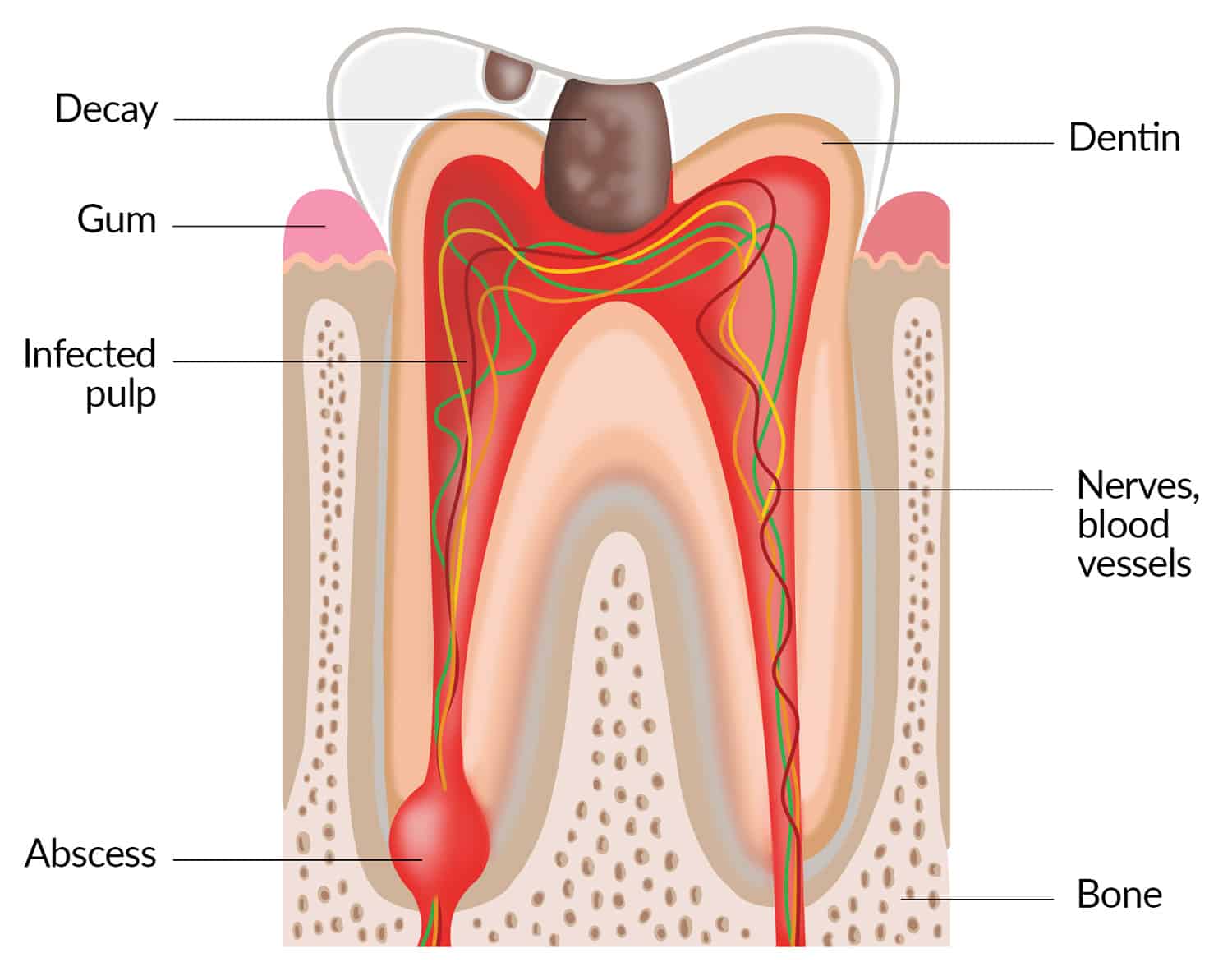Root Canal Treatment
Root canal treatment (endodontics) is a safe and effective way of saving a tooth that might otherwise need to be removed.
Treatment becomes necessary if the pulp of the tooth (housing its nerves and blood vessels) becomes infected or injured. This extends from the crown of the tooth down – through one or more ‘root canals’ – to the tip of the root.


Left untreated, infected pulp tissue, as well as being very painful, may also spread to surrounding bone, causing an abscess to form. Successful root canal treatment will quickly eliminate the pain and save your tooth – potentially for a lifetime.
Root canal treatment involves removing the inflamed pulp and then cleaning the root canal system to prevent infection from coming back. Once the root canal system has been cleaned, it is filled and sealed. A filling is then placed into the repaired tooth and a crown is then often required to protect the tooth from fracture.
What to expect
Root canal treatment today can sometimes be completed in just one appointment. However, more complex cases may need two or even three visits. If you require more than one visit, we will provide a temporary filling or crown, replacing it with a definitive one when the treatment has been completed.
Meet our Endodontists
Frequently asked questions
Is root canal treatment painful?
Using a local anaesthetic, we seek to make root canal treatments no more uncomfortable than having a standard filling. So unless you’re exceptionally unlucky, you can forget those horror stories from bygone days! Your tooth might be a little sore for up to 36 hours after treatment, but generally nothing that a standard, over-the-counter painkiller can’t handle. Treated teeth can be quite sensitive to pressure for several days, but usually settle down completely within a fortnight or so.
How successful is root canal treatment?
In most cases, you can expect around a 90% success rate for your root canal treatment, and for it to last at least 4 years. Indeed they can often last a lifetime, though there are many variables which may affect this. For example if the root system is particularly complex or inaccessible, or if you fail to maintain an effective post-treatment oral health regime. Occasionally roots can crack and will need to be extracted, but this is a relatively infrequent complication.
Is root canal treatment expensive?
Because root canal work is relatively complex and demanding of a high level of dental expertise, it tends to cost considerably more than the average filling. The crown required to complete your restoration will represent a substantial element of the overall cost.
Is there an alternative to root canal treatment?
Once pulp has become infected, the tooth must either be treated and restored, or removed. This is to prevent both pain and the spread of potentially lethal bacteria. For most dentists and patients, the ideal is to retain your own teeth for as long as you can!
However if that tooth loss becomes inevitable, we can offer you the next best alternative to what nature provided – a dental implant. Nowadays these both look and function exactly like natural teeth, are generally straightforward to insert and should last a lifetime if properly looked after.


